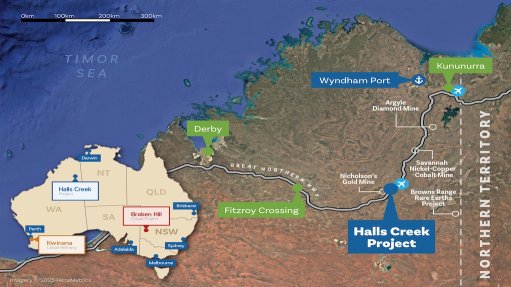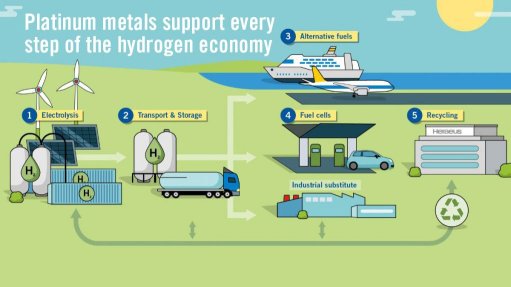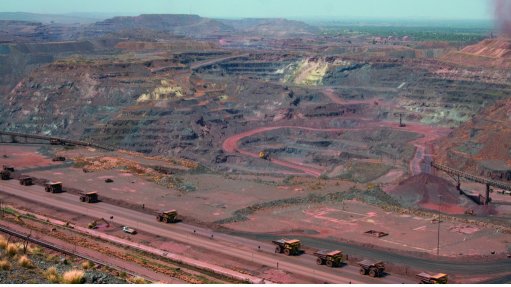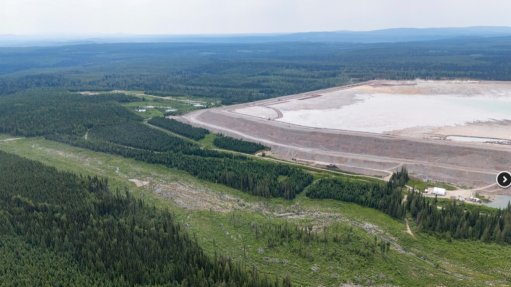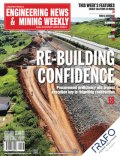Opinion: Beware, but do not fear!
In this article, Webber Wentzel senior associate Francois Sieberhagen writes about the implications of the Supreme Court of Appeal's (SCA's) judgment in the case of Minister of Mineral Resources and Energy & Three Others vs Sustaining the Wild Coast NPC and Eight Others.
On June 3, the SCA handed down its judgment in the Minister of Mineral Resources and Energy & Three Others vs Sustaining the Wild Coast NPC and Eight Others case.
The appellants, which included Shell Exploration and Production South Africa B.V. (Shell), sought to have the order by the court a quo set aside. The court a quo set aside the decision of the Minister of Mineral Resources and Energy to grant Impact Africa Limited an exploration right, as well as two renewals thereof.
The court's decision is important because it impacts the administrative decisions of the Minister that were taken on April 29, 2014; December 20, 2021; and August 26, 2021, respectively.
The appellants raised two preliminary issues in the SCA, the first being that the review application was out of time and the second being that the respondents, before taking the matter on review, failed to exhaust its internal remedies, as provided for in section 96 of the Mineral and Petroleum Resources Development Act 28 of 2002 (MPRDA). This section provides for internal appeals to the Director-General or Minister of the Department of Mineral Resources and Energy (DMRE), as the case may be.
With respect to the first preliminary issue, when arguing about when the 180-day period to institute review proceedings commenced, which is usually calculated from when a party is notified of or should reasonably have become aware of the decision it is aggrieved by, the court remarked that "[T]he point is that the Minister should have given clear notice of his decision to grant the exploration right and its renewals and informed all affected persons (being individuals and the public) of their right to appeal the decision or request reasons."
When considering the provisions of section 80 of the MPRDA, which for the most part mirror sections 16 and 23 of the MPRDA which deal with the granting of prospecting and mining rights, it places no obligation on the Minister, or any of his delegates, to provide notice of the decision to grant a right to an applicant. There is similarly no such obligation on the holder of a prospecting, mining or exploration right when looking at sections 19, 25 and 82 of the MPRDA. The only obligation to inform any interested and affected party of the fact that it now holds a right is found in section 5A of the MPRDA which requires that the holder of the right give the land owner and/or lawful occupier of the land in question 21 days written notice before commencing with the conduct of any operations. The MPRDA read with the Promotion of Administrative Justice Act 3 of 2002 (PAJA) all contemplate notice having to be provided before the decision to grant a right to an applicant.
Consequently, it could be argued that the SCA's view that "[I]t could thus never be that the general public could reasonably be expected to know that a right had been granted merely because the general public knew that a right had been applied for", is irrelevant.
The respondents also argued that there was no need to exhaust the internal remedies available to it as provided for in section 96 of the MPRDA, for the following reasons:
they only gained knowledge of the grant and renewal decisions seven years after the decisions were taken, and
the relief they sought initially was interdictory as the commencement of the seismic survey was imminent and would in all likelihood have been completed before any appeals would have resolved, rendering any internal appeal nugatory; and finally
that there existed a reasonable apprehension of bias against them, based on, inter alia, certain remarks made by the Minister in public forums.
The SCA was not in agreement with the appellants and confirmed that the court a quo had a wide discretion to exempt the respondents from exhausting the internal remedies available to it in the form of section 96 of the MPRDA by virtue of section 7(2)(c) of PAJA.
An interesting argument raised by the appellants, which ultimately prevailed when considering the order handed down in the SCA, was that "[S]ight cannot also be lost of the public interest in the finality of administrative decision-making and the degree of the irregularity or that the long delay and lack of legal certainty may have a chilling effect on foreign investment".
The SCA relied on previous judgments of the Constitution where it was found that it would be disproportionate to set aside an entire project, where time and money have been spent, simply because of an imperfect process, in arriving at its judgment. Stated differently, substance over form. The SCA considered the fact that 8 years had passed since the decision to grant the exploration right was taken and the fact that almost R1.1-billion had been spent on the project.
The appellants proceeded to extend an olive branch to the respondents and suggested that an order directing a further public participation process be commenced with, in anticipation of the third renewal application which was still pending, could mitigate against the abovementioned risks and would cure any defects in the public participation process that was followed previously, and which were raised during these proceedings. The SCA happily obliged and despite dismissing the appeal, ordered that the decisions taken by the court a quo be suspended pending such public participation process in respect of the third renewal application.
In a nutshell, any applicants for rights under the MPRDA need to be aware of the fact that any process previously followed in compliance with regulatory provisions could fall to be scrutinised at any moment, with detrimental effects. However, the SCA has reaffirmed that the bigger picture (public interest) should always prevail which decision should give investors some comfort as their hard-earned (and well-spent) money will not go to waste.
Comments
Press Office
Announcements
What's On
Subscribe to improve your user experience...
Option 1 (equivalent of R125 a month):
Receive a weekly copy of Creamer Media's Engineering News & Mining Weekly magazine
(print copy for those in South Africa and e-magazine for those outside of South Africa)
Receive daily email newsletters
Access to full search results
Access archive of magazine back copies
Access to Projects in Progress
Access to ONE Research Report of your choice in PDF format
Option 2 (equivalent of R375 a month):
All benefits from Option 1
PLUS
Access to Creamer Media's Research Channel Africa for ALL Research Reports, in PDF format, on various industrial and mining sectors
including Electricity; Water; Energy Transition; Hydrogen; Roads, Rail and Ports; Coal; Gold; Platinum; Battery Metals; etc.
Already a subscriber?
Forgotten your password?
Receive weekly copy of Creamer Media's Engineering News & Mining Weekly magazine (print copy for those in South Africa and e-magazine for those outside of South Africa)
➕
Recieve daily email newsletters
➕
Access to full search results
➕
Access archive of magazine back copies
➕
Access to Projects in Progress
➕
Access to ONE Research Report of your choice in PDF format
RESEARCH CHANNEL AFRICA
R4500 (equivalent of R375 a month)
SUBSCRIBEAll benefits from Option 1
➕
Access to Creamer Media's Research Channel Africa for ALL Research Reports on various industrial and mining sectors, in PDF format, including on:
Electricity
➕
Water
➕
Energy Transition
➕
Hydrogen
➕
Roads, Rail and Ports
➕
Coal
➕
Gold
➕
Platinum
➕
Battery Metals
➕
etc.
Receive all benefits from Option 1 or Option 2 delivered to numerous people at your company
➕
Multiple User names and Passwords for simultaneous log-ins
➕
Intranet integration access to all in your organisation









